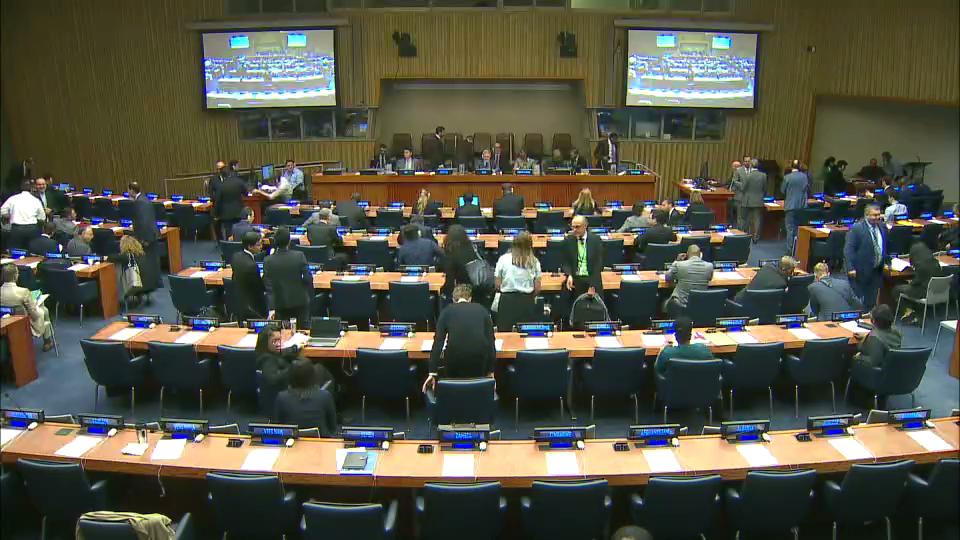CHRI – Serious Concern Expressed for Unlawful Executions and Arbitrary Detentions
November 19, 2018 – With two more votes than the previous year, the UN General Assembly’s Third Committee approved a resolution urging Iran to address a list of human rights violations including the widespread use of arbitrary detention.


Eighty-five countries voted to adopt resolution A/C.3/73/L.42, which was presented on November 15, 2018, with 30 countries voting against and 68 abstaining. Last year, 83 countries had voted in favor of that year’s resolution on Iran.
“More and more countries are sending a clear message to Iranian officials that they will not turn a blind eye to these continuing rights abuses,” said Hadi Ghaemi, executive director of the Center for Human Rights in Iran (CHRI).
The Canada-sponsored resolution, supported by 40 human rights organizations, expressed serious concern over a range of continuing rights violations including the “imposition of the death penalty against minors and persons who at the time of their offense were under the age of 18, in violation of the Convention on the Rights of the Child.”
The resolution also urged Iran to “cease the widespread and systematic use of arbitrary detention, including the use of this practice to target dual and foreign nationals” and to “release those who have been arbitrarily detained.”
Thousands of people were arbitrarily detained throughout the country in 2018 including over 4,000 people who were arrested during the protests that began in December 2017 and lasted through January.
Dozens of environmentalists and wildlife activists were also detained this year, five of whom were charged with national security crimes nine months after they were arrested and held without access to counsel.
At least 30 people, mostly women, were also detained in 2018 for peacefully protesting Iran’s compulsory hijab law by removing their veils in public, and a growing number of attorneys have been imprisoned for trying to defend their clients and civil liberties in Iran.
The resolution “strongly” urged Iran “to eliminate, in law and in practice, all forms of discrimination and other human rights violations against women and girls, including with respect to the right to freedom of movement, the right to enjoyment of the highest attainable standard of physical and mental health, the right to freedom of religion or belief and the right to work.”
The resolution welcomed Iran’s engagement with the UN on some issues including amendments made to the Anti-Narcotics Law, passed in October 2017, which eliminated the mandatory imposition of the death penalty for lower level drug-related offenses and which have so far led to a significant drop in drug-related executions.
Echoing Iran’s response from previous years, Iran’s Deputy UN Ambassador Eshagh Al Habib criticized the resolution as a “political charade” on November 15, adding, “Similar to any other country, deficiencies may exist, and we are determined to address them.”
CHRI urges the Iranian authorities to heed the recommendations of the Third Committee resolution and work closely with the UN, including its special rapporteurs and mechanisms, to implement substantive improvements in all of the areas of concern noted in the resolution.
“The Iranian authorities should take note; the international community does not accept their continuing disregard for the law and for the basic rights and freedoms of the Iranian people,” said Ghaemi.
“Instead of dismissing the international community’s demands and imprisoning its own citizens, the authorities should start upholding people’s lawful rights,” he added
 Shabtabnews In this dark night, I have lost my way – Arise from a corner, oh you the star of guidance.
Shabtabnews In this dark night, I have lost my way – Arise from a corner, oh you the star of guidance.


